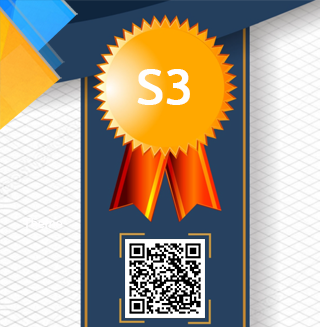Co-Designing Health Intervention by Using WhatsApp for Preventing the Stunting in Toddlers During the COVID-19 Pandemic
DOI:
https://doi.org/10.25311/keskom.Vol8.Iss3.1240Abstract
Stunting case in Indonesia is still high, so the provision of complete health information for toddler health is extremely needed during the COVID-19 pandemic. Therefore, this study aims to design a health information service online by using WhatsApp to prevent toddler stunting in the rural community. This study was action research in which a co-design methodology was used to design the health information service. This study involved the health front, midwifery, nutritionist, and village apparatus in which they were interviewed and followed focus group discussion (FGD). In addition, the USE questionnaire was used to measure the effectiveness of the health information service that had been designed. The results of the interview and FGD showed that rural people knew more about the use of WhatsApp than other online communication platforms. In addition, during the COVID-19 pandemic, there were a number of health programs that would be stopped. As a consequence, online interactive health information service was extremely needed to promote the sustainability of health programs in the rural community. Furthermore, the results of the USE questionnaire showed the average percentage of usefulness, ease of use, ease of learning, and satisfaction of the online health information service was 85,43%. This indicates that the hotline stunting program (INSTING), an online health information service, is extremely eligible to be applied in the rural community in conducting communication regarding health information during the COVID-19 pandemic.
Downloads
References
Absori, A., Hartotok, H., Dimyati, K., Nugroho, H. S. W., Budiono, A. and Rizka, R. (2022) 'Public health-based policy on stunting prevention in Pati regency, Central Java, Indonesia', Open Access Macedonian Journal of Medical Sciences. 10(28), pp. 259–263. doi: 10.3889/oamjms.2022.8392.
Adekoya, C. O. and Fasae, J. K. (2022) 'Social media and the spread of COVID-19 infodemic', Global Knowledge, Memory and Communication. 71(3), pp. 105–120. doi: 10.1108/GKMC-11-2020-0165.
Agustina, D. N., Sartono, B. and Notodiputro, K. A. (2021) 'Analysis of multidimensional stunting intervention factor using mixed model', IOP Conference Series: Earth and Environmental Science. 948(012067), pp. 1–10. doi: 10.1088/1755-1315/948/1/012067.
Candriasih, P., Ndama, M. and Pont, A. V. (2021) 'Specific and sensitive nutrition interventions with nutritional status of toddlers as prevention of stunting in the coronavirus disease 2019 pandemic in Sigi district, Indonesia', Open Access Macedonian Journal of Medical Sciences. 9, pp. 415–418. doi: 10.3889/oamjms.2021.6148.
Cox, J. L., Seaman, C. E., Hyde, S., Freire, K. M. and Mansfield, J. (2022) 'Co-designing multidisciplinary telehealth education for online learning', Health Education. 122(2), pp. 164–179. doi: 10.1108/HE-10-2020-0098.
Cronje, J. C. and van Zyl, I. (2020) 'WhatsApp as a tool for building a learning community', The Electronic Journal of E-Learning. 20(3), pp. 296–312. doi: 10.21506/j.ponte.2018.1.36.
Ernawati, R., Rahman, F. F., Khoiroh, S., Rahmah, D., Milkhatum, Sulistiawan, J. and Moslehpour, M. (2021) 'The effectiveness of web-based audiovisual media applications in monitoring children’s growth to prevent stunting', Advances in Decision Sciences. 25(3), pp. 1–11.
Gall, M. D., Gall, J. P. and Borg, W. R. (1984) Educational Research: An Introduction (7th ed.). United Kingdom: Pearson Education, Inc. doi: 10.2307/3121583.
Gao, M., Kortum, P. and Oswald, F. (2018) 'Psychometric evaluation of the USE (usefulness, satisfaction, and ease of use) questionnaire for reliability and validity', in Proceedings of the Human Factors and Ergonomics Society, 3, pp. 1414–1418. doi: 10.1177/1541931218621322.
Hariyanto, D., Triyono, M. B. and Köhler, T. (2020) 'Usability evaluation of personalized adaptive e-learning system using USE questionnaire Didik Hariyanto Recommended citation : Usability evaluation of personalized adaptive e-learning system using USE questionnaire Didik Hariyanto * Thomas Köhler', Knowledge Management & E-Learning. 12(1), pp. 85–105.
Hijrawati, Usman, A. N., Syarif, S., Hadju, V., As’ad, S. and Baso, Y. S. (2021) 'Use of technology for monitoring the development of nutritional status 1000 hpk in stunting prevention in Indonesia', Gaceta Sanitaria. 35(2), pp. 231–234. doi: 10.1016/j.gaceta.2021.10.028.
Hussain, T., Jawed, N., Mughal, S. and Shafique, K. (2022) 'Public perception of isolation, quarantine, social distancing and community containment during COVID-19 pandemic', BMC Public Health. 22(1), pp. 1–9. doi: 10.1186/s12889-022-12970-y.
Jayanti, K. D. and Wibowo, A. (2017) 'Faktor yang memengaruhi kematian ibu (studi kasus di Kota Surabaya)', Jurnal Wiyata Penelitian Sains dan Kesehatan. 3(1), pp. 46–53.
Kementerian Kesehatan Republik Indonesia. (2016) 'Situasi balita pendek. ACM SIGAPL APL Quote Quad'. 29(2), pp. 63–76. doi: 10.1145/379277.312726.
Kementerian Kesehatan Republik Indonesia. (2019) Profil Kesehatan Indonesia. Jakarta: Kementerian Kesehatan RI. pusdatin.kemkes.go.id
Maisonah, M. (2020) 'Auto whatsapp sebagai alternatif layanan perpustakaan pada masa pandemi COVID-19 di IAIN Curup', Tik Ilmeu: Jurnal Ilmu Perpustakaan dan Informasi. 4(2), pp. 170 - 195. doi: 10.29240/tik.v4i2.1988.
Noorbergen, T. J., Adam, M. T. P., Teubner, T. and Collins, C. E. (2021) 'Using co-design in mobile health system development: A qualitative study with experts in co-design and mobile health system development', JMIR MHealth and UHealth. 9(11), pp. 1–16. doi: 10.2196/27896.
Nugroho, A., Warnars, H. L. H. S., Gaol, F. L. and Matsuo, T. (2022) 'Trend of Stunting Weight for Infants and Toddlers Using Decision Tree', IAENG International Journal of Applied Mathematics. 52(1).
Ravalier, J. M. (2022) 'Co-design , delivery , and evaluation of wellbeing initiatives for NHS staff : The HOW (healthier outcomes at work) NHS project', International Journal of Environmental Research and Public Health. 19(4646), pp. 1–15.
Ritzer, G. and Goodman, D. J. (2004) Teori Sosiologi Modern. Yogyakarta: Kreasi Wacana.
Downloads
Submitted
Accepted
Published
How to Cite
Issue
Section
License
Copyright (c) 2022 Jurnal Kesehatan Komunitas

This work is licensed under a Creative Commons Attribution-NonCommercial-ShareAlike 4.0 International License.




























